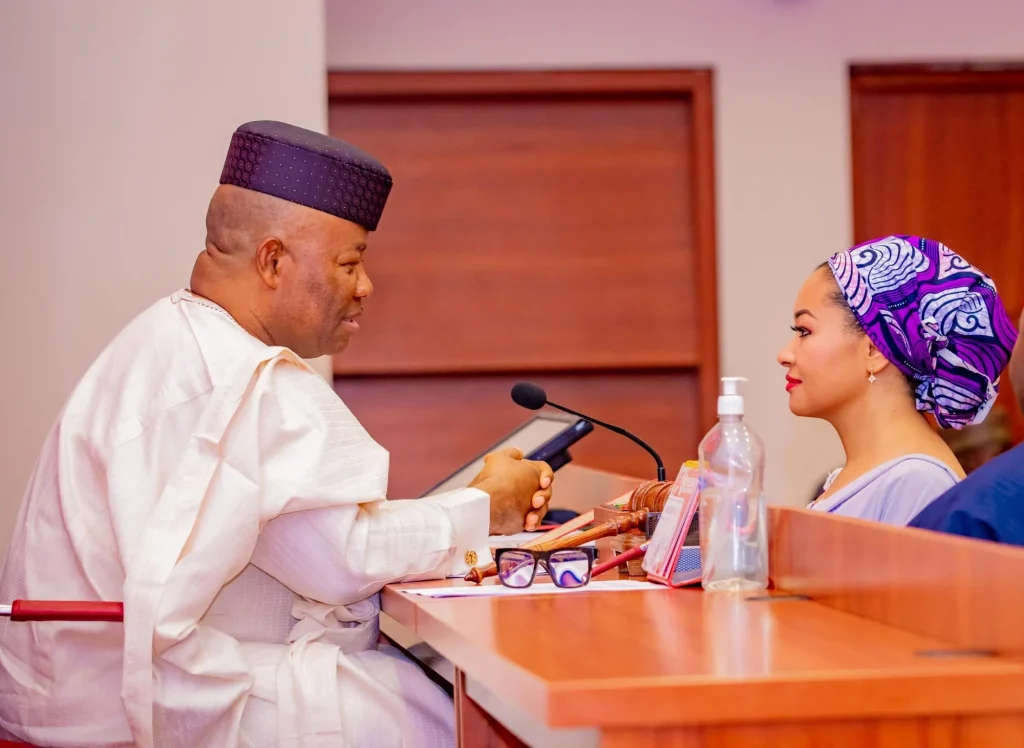
Samuel Omang
The Senate has named Senator Aniekan Bassey as the new Chairman of the Committee on Diaspora and Non-Governmental Organisations.
Senate President Godswill Akpabio announced the appointment during Thursday’s plenary, confirming Bassey’s replacement of Senator Natasha Akpoti-Uduaghan, who is currently on suspension.
Akpoti-Uduaghan was reassigned to the Diaspora and NGOs Committee in February after she was removed as Chair of the Senate Committee on Local Content during a minor reshuffle. Bassey is the senator representing Akwa Ibom North-East Senatorial District.
Although no official reason was given for her removal on Thursday, the change is believed to be connected to her unresolved suspension from the Senate.
In May, Justice Binta Nyako of the Federal High Court ordered her reinstatement and directed her to tender an apology to the Senate. However, the Senate has insisted it has not received a certified true copy (CTC) of the court judgment.
Akpoti-Uduaghan, who represents Kogi Central, has yet to resume her legislative duties despite the court ruling voiding her suspension. In a televised interview on Tuesday, she said she was awaiting the certified true copy of the judgment before officially returning to plenary, citing legal advice and a desire to respect institutional process.
Although the Federal High Court described her suspension as “excessive and unconstitutional,” a legal opinion dated July 5 and attributed to the Senate’s counsel, Paul Daudu (SAN), argued that the ruling lacked any binding directive to enforce her reinstatement.
Akpoti-Uduaghan, one of only three female senators in the current assembly, criticised the continued delay in allowing her return, describing it as both a denial of her mandate and a blow to democratic representation.
“By keeping me out of the chambers, the Senate is not just silencing Kogi Central—it’s denying Nigerian women and children representation. We are only three female senators now, down from eight,” she said.
Her removal deepens concern over the shrinking presence of women in Nigeria’s political leadership. Civil society groups have raised alarm that decisions such as this could reverse the slow progress made in gender inclusion within the legislature.
Advocates for women’s participation in governance say the latest development highlights the fragility of gender gains in the Senate and underscores the urgent need for institutional safeguards to protect female voices in public office.
“This is a dangerous precedent,” said a spokesperson for the Nigerian Women in Politics Forum. “When a woman elected by the people is suspended, sidelined, and then stripped of leadership while awaiting due process, it sends a chilling message to women across the country.”
As the controversy continues, the future of one of the few women in Nigeria’s highest legislative chamber remains uncertain—amplifying the call for fairness, transparency, and stronger representation of women in government.
